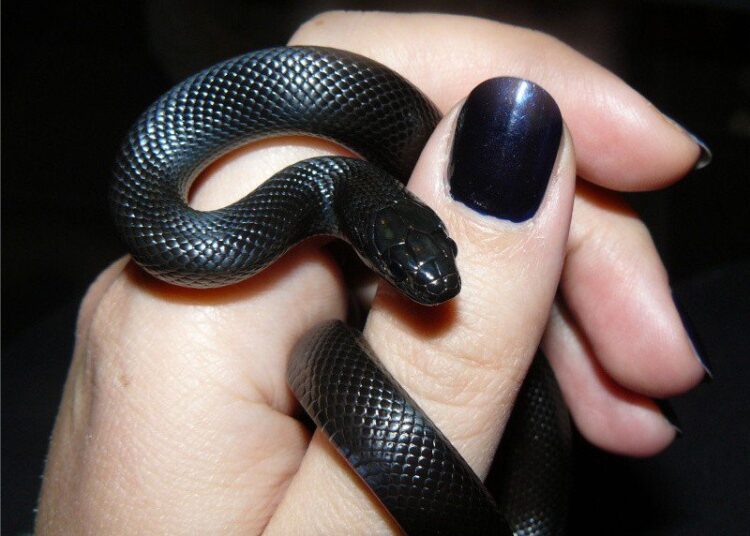Are you planning to get a pet reptile? If yes, then you’re in the perfect place. Keep reading to get an idea of more or less every little thing you have to consider before bringing home your new scaly, cold-blooded buddy.
Finding Out If a Pet Reptile Is Legal
If you live in the United States, you should thoroughly research the legality of keeping a reptile as a pet in your area. In some states such as New York and Ohio, there are complete bans.
They may, however, allow you to keep them with a license under specific circumstances. In other states such as Texas, you will be required to register for a license. Nevada, North Carolina, and Alabama have no bans; however, they may monitor certain aspects of your pet keeping. You may also need an import license and/or health certificates.
What to Feed Your Reptile
How active your reptile is will determine how frequently you should feed it. Small species which are active require one meal a day. Dubia roaches are an excellent option for them.
They have high water content. On the other hand, larger, less active species have to be fed only once per week. You can find Dubia Roaches For Sale for larger four to five feet in length reptiles too. Reptiles that are herbivorous need a wider range of variety in their diet. You can also opt for premade meals sold commercially to ensure your reptile gets the correct amount of nutrients and vitamins.
Vet Care for Your Reptile
The key to properly taking care of your reptile is ensuring good health. A reptile can be infected by internal or external parasites, stomach infections, respiratory infections, and so on. Besides, since they are often caught in the wild, they require vet care by default. Before bringing your reptile home, research the vets which are most popular among reptile pet-owner societies.
Choosing one beforehand can save you a lot of time and money. You should get a health check-up done before placing it in its tank. This is because it may have a parasite which means you’ll have to bleach its home all over again. For certain reptile diseases, one of the first signs is your reptile refusing to eat.
Reading Suggestion: Mexican Black Kingsnake Guide
Setting up Your Reptile’s Home
You need to wash everything before putting it inside your pet’s home to prevent microorganism infections. Your reptile’s enclosure will depend on how big it is as well as what environment best suits it. Larger reptiles can be kept in habitats that are up to the size of a room. For smaller ones, you can opt for terrariums. You may want to buy a floor covering to ensure cleanliness.
You might be surprised by this, but decorations such as basking limbs, plants, rocks, etc. are super important. They help your reptile by giving it a sense of security and an opportunity to camouflage. You could consult a reptile expert to figure out what would be the optimal living conditions for your pet.
Ensuring the Right Lighting and Temperature
Due to being cold-blooded, external temperature plays a huge role in reptiles’ well-being. The exact temperature will totally depend on what species your reptile is, and what environment it needs to survive. For many species, a temperature gradient is optimal. You may provide heat via basking lamps, space heaters, and so on.
As a precaution against accidental burns, the heaters are placed outside the tank. Don’t forget a wide-range thermometer for monitoring the temperature. Two types of specialty bulbs are widely used: full-spectrum fluorescent lamps and full-spectrum incandescent basking lamps.
Handling Your Reptile
Reptiles are finding more fans in zoos and pet stores, as well as households. But it’s a must to handle reptiles with extra care. Like any other animal, reptiles won’t immediately be receptive to touching and handling. Reptiles generally take time to adapt to a new home. You need to wait for a week or two until a pet reptile is used to the new environment. Don’t be intrusive, and just stay around until the reptile is used to your presence.
Reptiles usually only tolerate if not outright hate human interaction. Always be mindful of how much physical affection you show your reptile pet. If you want to pet or cuddle your buddy, opting for a social mammal instead would be a better idea.
You should refrain from touching your reptile at all for the first month after you bring it home, except for when you are cleaning the cage. Reptiles don’t form emotional bonds, and excessive handling can ruin their health by stressing them out.

What are the best reptiles to take home as pets? In general, most reptiles are amenable to being handled. But some reptile species are more suitable as pets than others, such as the following:
- Bearded dragons
- Geckos
- Ball pythons
- Slider turtles
Note: Many factors can affect the behavior of a reptile, such as its health condition, shedding, and hunger, making it irritable. It’s best to get a captive bred reptile, which is more likely to be sociable and less at risk of parasitic disease.
You need to practice handwashing before and after handling reptiles to prevent bites and disease transmission. Because reptiles are naturally predatory, odd smells can trigger them to attack. Washing your hands after handling reptiles is also a great way to protect your health since reptiles carry salmonella.
To Sum Up
As you must have realized by now, alongside your reptile pet, you are going to be bringing a lot of responsibilities home. Take your time to think the decision through since reptiles require considerably more care than most other animals.
You should not opt for a reptile if you plan to abandon it once it is grown. Don’t worry too much and don’t rush. With the right efforts, you will be able to be a great reptile parent!
Frequently Asked Questions(FAQ)
Where Can You Buy a Reptile?
You can find plenty of reptile shops near your home via a quick search on the Internet. If that is not the case, you can look into online stores which may ship to your area.
Check out pet owners’ reviews before making your purchase. You may even consult in online forums of reptile parents for store recommendations.
How Much Does a Reptile Cost?
A reptile may cost anywhere between $15 to $150. You have to keep in mind that you will need to spend more on setting up your reptile’s home than on the reptile itself.
A majority of your attention and care will have to go into maintaining the perfect conditions for your reptile to thrive.
Where Can I Read up on Reptile Care?
You can buy books on reptile care or spend time browsing breeder websites or reptile care forums.
You should try to learn as much as you can about reptiles in general and then move on to researching the species that you like before choosing what kind of reptile you want.
Is Cohabitation a Possibility?
For certain species, yes, like turtles and tortoises as well as some lizards such as bearded dragons, geckos, etc. Successful cohabitation is possible if they are set up in the same species tanks properly.
If you want a snake, it is best to keep them alone. Even if you buy two of the same species, they are likely to thrive better when they have one tank each.








